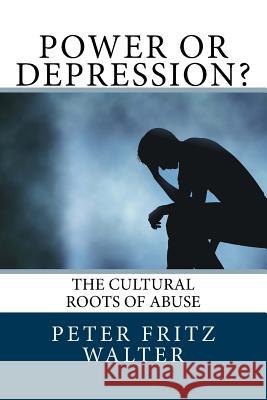Power or Depression?: The Cultural Roots of Abuse » książka
Power or Depression?: The Cultural Roots of Abuse
ISBN-13: 9781517321871 / Angielski / Miękka / 2015 / 146 str.
'Power or Depression: The Cultural Roots of Abuse (Scholarly Articles, Vol. 12)' points out the historical roots of abuse and patriarchal society's systematic breeding of depression as something like a cultural disease. However, the author does not stay with the analysis but shows practical ways to get free from the cultural trap so as to find a way of personal liberation and creative realization. The approach of this book to healing the abuse pattern is mainly focused upon establishing a strong identity, building soul values, and realizing a high level of personal autonomy. This involves working on the integration of emotions and the dissolution of patterns of codependence and emotional abuse in our lives and relationships. And beyond current cutting-edge psychiatry that has recognized the devastating effects of codependence and emotional abuse in individual relationships, this essay shows these same effects to happen in the relation individual-organism, individual-group, individual-ideology, individual-sect. Fusion is even more dangerous when people seek to dissolve themselves within organizations, because what happens then is that they will indeed by eaten up by the organism and become wheels in a murderous system. One essential element in this process of identifying and healing an abuse pattern in your life is to stay as much as possible untouched by the current media propaganda that focuses on labeling certain people as abusers, and certain people as victims, thereby occulting the real causes of abuse in our culture. In truth, it's the system itself that perpetuates abuse as forensic psychiatry, to this very day, precludes any reform with the argument that the abused of today will inevitably be the abusers of tomorrow. In reality, the chain of abuse can well be broken by appropriate support and treatment. The reason why abuse is and will be perpetuated to the generations to come is because society at large does not go beyond its moralistic, reductionist and judgmental life paradigm that projects problems large-scale on certain groups of people, on so-called 'perpetrators' and 'offenders, ' predators and their prey-victims, in order to avoid taking responsibility for the problems it has itself created as a society.
Zawartość książki może nie spełniać oczekiwań – reklamacje nie obejmują treści, która mogła nie być redakcyjnie ani merytorycznie opracowana.











